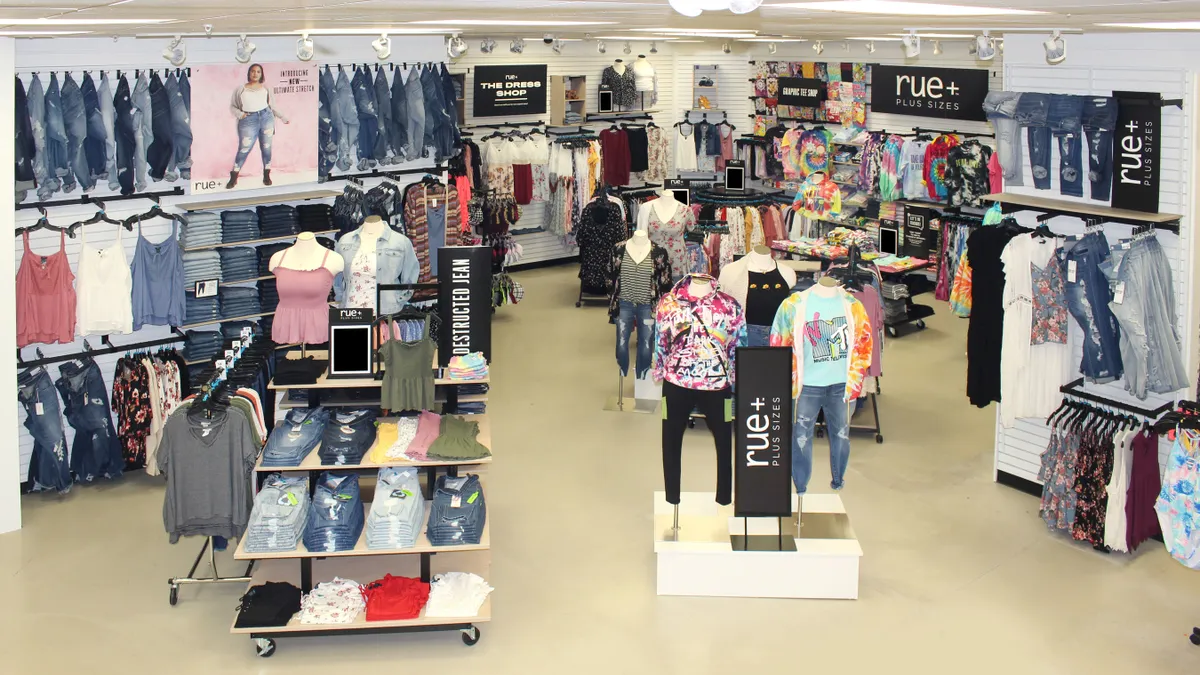Dive Brief:
- Rue21 plans to open 15 new brick-and-mortar stores starting in January, a little more than three years after emerging from bankruptcy.
- Chief Financial Officer Michele Pascoe said in a press release that the women's apparel retailer has been beating expectations and increasing its comparable sales year over year. It recently opened three new stores, in addition to those planned for next year.
- Rue21's performance and financial position allowed it to retire debt while increasing availability under its asset-based facility with Bank of America, leaving it with $100 million in total liquidity.
Dive Insight:
By its own account, Rue21 is outperforming many of its peers in the apparel space, which was struggling pre-pandemic and has suffered even deeper traffic and sales losses in the COVID-19 era.
The retailer filed for bankruptcy in 2017 amid a wave of filings by specialty retailers, many of them private equity-owned and as a result overburdened with debt. Chapter 11 gave the company a chance to shrink its footprint, by more than 400 stores, and shed millions in debt. It also changed hands, with lenders taking over the company from private equity firm Apax Partners.
Once with a footprint of around 1,200, today Rue21 has nearly 700 stores spanning most of the country and promises "quality styles at accessible price." According to the company, the retailer is " significantly outperforming the apparel market trends" in the pandemic era.
Rue21 has been busy this year, bringing on former HSN President Bill Brand as its next CEO. It has also launched a loyalty program, "rue rewards," that has 2.8 million members. Additionally, it has expanded plus-sized apparel to more of its stores.
Like several other apparel retailers at the time, and many more in the years since, Rue21 fell into bankruptcy as its debt load ran into changing shopping trends, namely a continuing decline in mall traffic. Its journey through bankruptcy was relatively swift and smooth, allowing for a quick reorganization.
Other retailers from that bankruptcy class haven't turned out so lucky. Gymboree and Payless, which also both filed and exited bankruptcy in 2017 with lender-driven reorganizations, both filed for bankruptcy again last year. Both liquidated their U.S. footprints in bankruptcy. (Payless has since planned to open new stores in North America.)
Today, apparel retailers make up an outsized share of 2020 bankruptcies and distressed companies as the pandemic weighs on mall traffic and consumers, stuck at home, shift spending away from clothing.
















